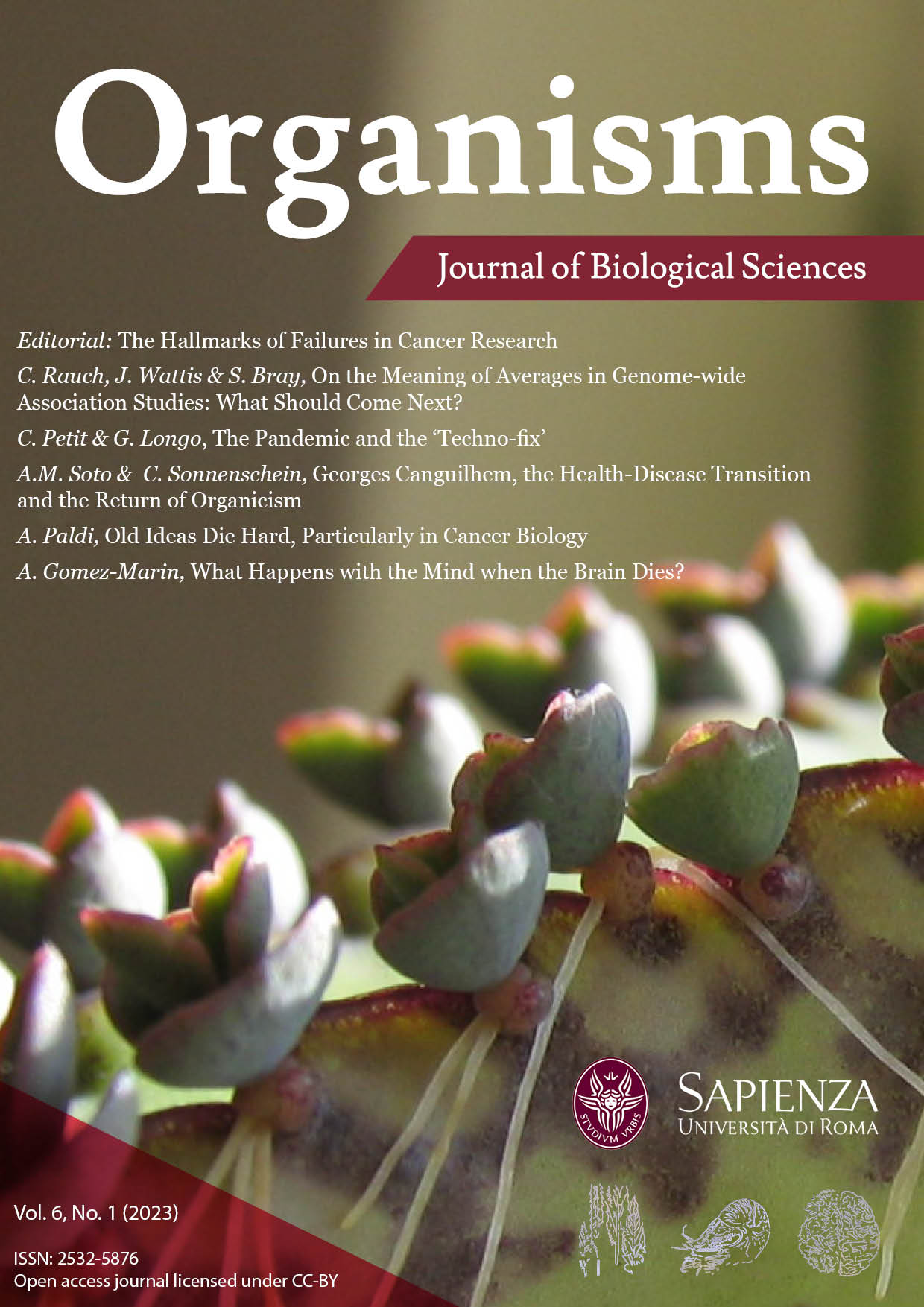Georges Canguilhem, the Health-Disease Transition and the Return of Organicism
DOI:
https://doi.org/10.13133/2532-5876/17792Abstract
The Normal and the Pathological is a remarkable book by Georges Canguilhem, originally published almost 80 years ago. It should play a much more important role in medical education and in the study and praxis of biology because of its rich and relevant approach to the knowledge of organisms. Indeed, only organisms can go through sickness and health; these states are axiological categories as they represent values. However, when it was published, the molecular biology revolution introduced the idea of genetic program and that organisms would be a kind of machine or computer. This concept combined the naive 19th-century physicalism with the metaphor of programs and signals borrowed from mathematical theories of information. As a consequence, the main concepts of biology, such as teleology, agency and normativity—the latter, a central concept in Canguilhem’s thought—were abandoned by biologists and medical doctors.
Over the last 20 years, the failure of ideas guiding the molecular biology revolution allowed for the growth of organicism, a tradition committed to the autonomy of biology and its irreducibility to physics and chemistry. These developments encouraged theoretical biologists and philosophers to re-examine the aforementioned biological concepts rejected by reductionism. Their critical work produced versions of these concepts that are now compatible with notions of scientific causality, and therefore, an opportunity to present Canguilhem’s work to new generations of biologists and physicians.
Canguilhem’s work advances the understanding of biological entities by introducing the axiological notion of individuality, the concept of organismal “normativity” (i.e. the capacity of organisms to create their own norms) and, related to these two concepts, the organism’s propensity to make mistakes—an exclusive property of biological systems.
Downloads
Published
How to Cite
Issue
Section
License
Copyright (c) 2023 Ana Soto, Carlos Sonnenschein

This work is licensed under a Creative Commons Attribution 3.0 Unported License.
Copyright Agreement with Authors
Before publication, after the acceptance of the manuscript, authors have to sign a Publication Agreement with Organisms. The authors retain all rights to the original work without any restrictions.
License for Published Contents

You are free to copy, distribute and transmit the work, and to adapt the work. You must attribute the work in the manner specified by the author or licensor (but not in any way that suggests that they endorse you or your use of the work).





